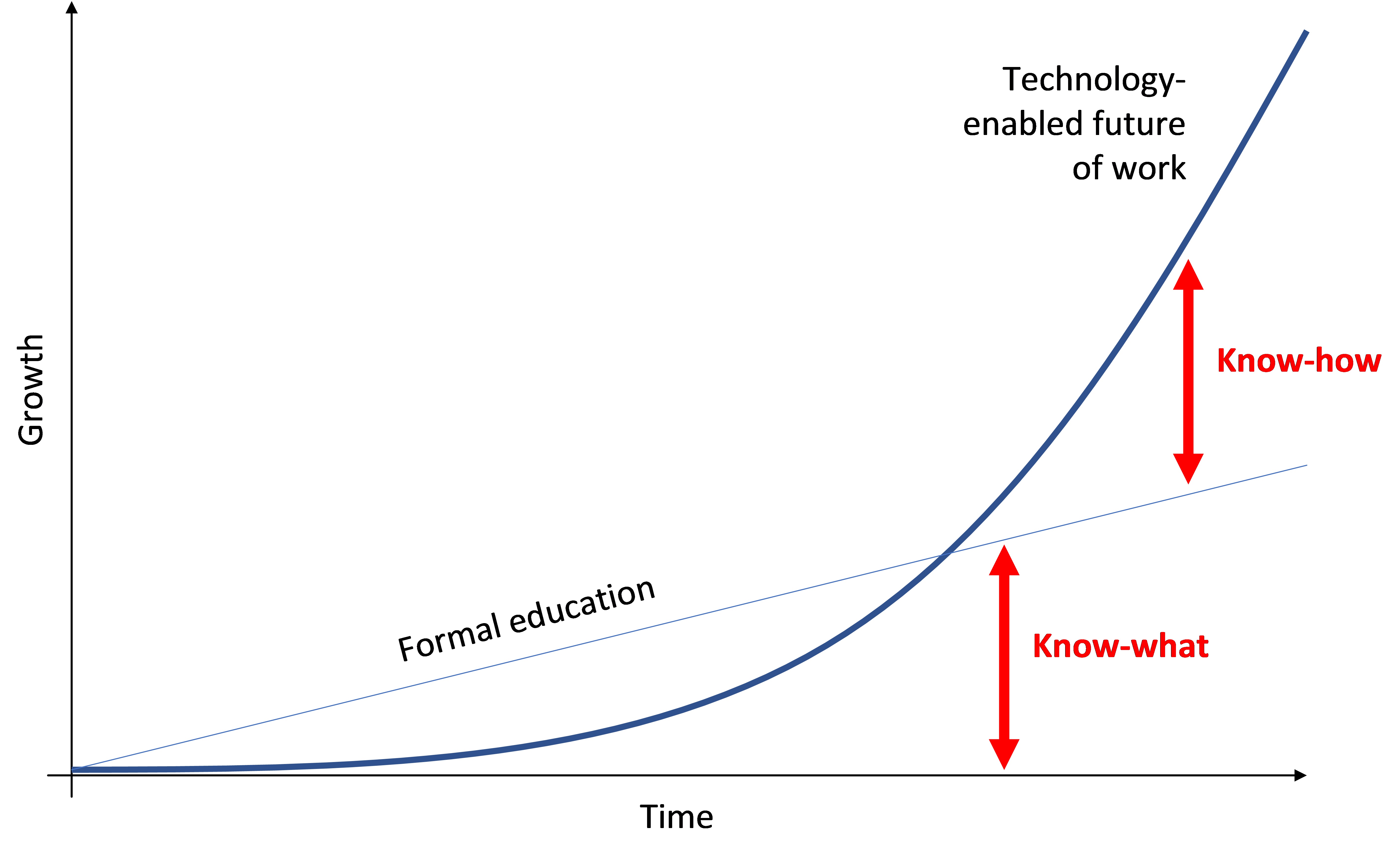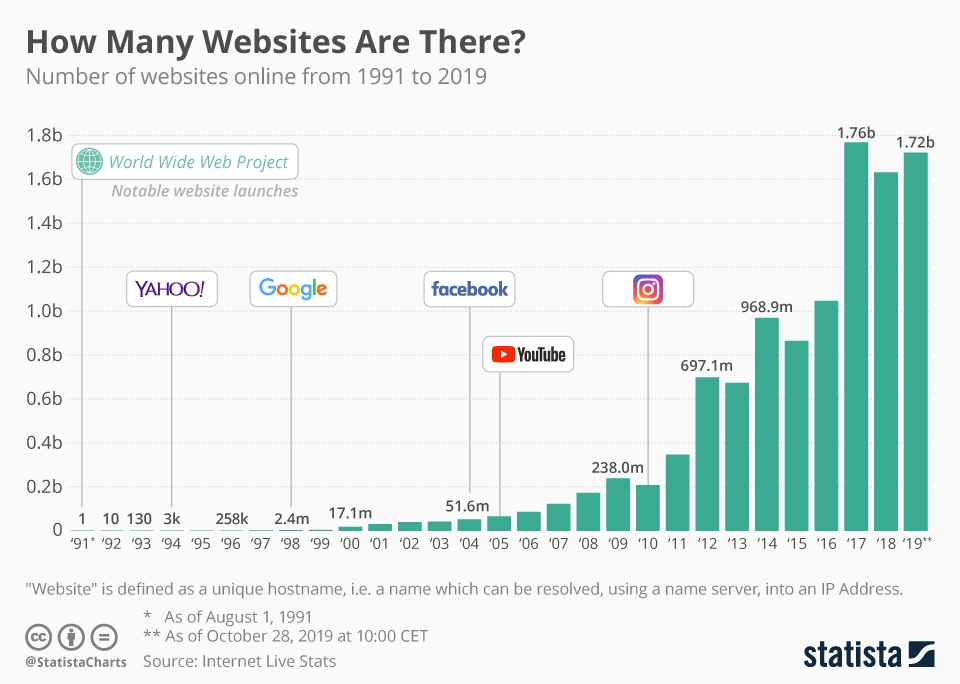Current industrial-age classroom teaching methods and systems adopted by many developed and developing countries have not yielded the positive outcomes that they were hoping for. After spending millions of dollars, countries like the US and Australia are still asking the question, “What went wrong?”
It is easier to kill the messenger than to fix the root cause of the problem. Many experts give reasons (or excuses) as to why there were no improvements in student performance despite massive amounts of investment money – testing was not ‘right’, or our students did not take these tests seriously, to name the few.
Students are incurring a significant amount of study debts at alarming rates as education cost increases. They are also in debt much longer even until retirement. Rising debt levels are impacting debtors’ ability to live normally, buy a house and even start a family.
The key problem
Technology is significantly impacting the way we acquire and search for information. It will continue to disrupt the way we think about acquiring and using knowledge.
Humans acquire knowledge in a linear progression over time, whereas technology generates data exponentially.
Moore’s Law refers to Moore’s perception that the number of transistors on a microchip doubles every two years, though the cost of computers is halved. The law states that we can expect the speed and capability of our computers to increase every couple of years where this growth is exponential.
Advances in technology have, therefore, given us the ability to generate or collect vast amounts of data and information exponentially.
Unfortunately, humans will not have the capability and capacity to store all this new information for future use. More so on a just-in-case basis or just-for-knowledge’s sake.
When all the worlds’ information is instantaneously at your fingertips, why try and remember everything we need to know? Why not treat the Internet as an extension of our memory?
We have already passed the point of no return – knowing how to search for the relevant information (know-how) is now more important than knowing what it is (know-what). There’s too much information to take in and remember.
Based on Moore’s Law, the gap between knowing what and knowing how will exponentially increase due to advances in technology, as shown in the diagram below.

A different education and learning approach is, therefore, urgently needed to cost-effectively equip our future generations with employable and future-ready skills and experience.
Technology is the key driver of change
Technology has significantly increased the collection and availability of data and information. It has exponentially improved and advanced the way data and information are acquired, linked, stored, analyzed, and reported.
Technology has enabled, allowed, or even forced us to move from information intake (i.e., What other knowledge should I acquire?) to information embodiment (i.e., What will I now do with what I have learned?)
Free information everywhere!
Information is being commoditized and is freely available.
We need to know where, when, and how to look for the appropriate information.
For those who have computers and Internet access, they will naturally jump onto the Internet (the platform) and use Google (the tool) to ask the right questions (the search term) when they need information on demand.
With over 1.72 billion websites in 2019, this number will only grow, as shown in the diagram below. With the current world population at 7.7 billion, there’s roughly one website for every five persons!

People can freely search online for any information, answers, or solutions to their problems. There is no need to pay premium prices anymore. Many people have become DIY enthusiasts as they self-manage themselves.
When demand for monopolistic information drops, so do prices. Economically, this is what we are seeing across many information-based occupations. Salary and wage stagnation have become a common occurrence.
Knowing what questions to ask
Rather than acquiring just-in-case or just-for-knowledge information, we are pivoting or have transformed into the acquisition of just-in-time information. This acquired information will be used for specific purposes, bounded by time, and its context and circumstances.
To do so, we must first understand the problem and its root causes. When we know the exact problem to be solved, finding the solution or searching for the required information becomes easier.
Based on a framed problem statement, we can then formulate the right questions to ask based on our prior experiences.
Discernment helps us connect the dots
Work is being increasingly digitized and automated. This will result in the constant creation of new or the reshaping of old tools and platforms. When this occurs, we may not be able to make the connection between the problem and the tools and platforms, as previously experienced.
We may mistakenly frame the issue as a problem stemming from a lack of knowledge or skills instead. But this may not be the case.
Instead, what we’re seeing is not a lack of skills, but perhaps a lack of discernment. It is the ability to read the environment and make sharp judgments about how we can apply ourselves in that environment.
Being a digital native
As more people grow up with digital technology, they become comfortable around various tools and platforms.
Unfortunately, familiarity does not prevent us from using the wrong tools or platforms for the job at hand.
We tend to over-estimate our skills in unpacking the problem. This could include using the wrong tools and platforms at the wrong time to solve the problem.
Discernment is the secret ingredient for the future of work
Discernment, which is learned through experiences not taught in classrooms, is the secret ingredient for us to succeed in the future of work. It enables us to use the right tools and platforms at the right time to find solutions and solve problems.
Discernment helps us frame the problem in such a way that it helps us understand the impact of using specific tools and platforms in context or situation. It helps us identify and evaluate the opportunities and limitations within the unique context and circumstances we find ourselves in.
Discernment also helps us fully understand what, when, and why different tools could be used on which platform to solve different types of problems.
Importance of contextual understanding and learning
We need to have a contextual understanding for making informed decisions. This is done by constantly exploring various issues and problems in a different context to discover when we can use specific tools and on which platforms.
It boils down to learning from experiences in applying various tools on different platforms to solve different types of problems in various contexts and occasions.
Curiosity, experimentation, and risk-taking are key elements for enabling us to learn from our experiences.
Thriving in the brave new world
It is much easier to teach people how to use tools like Google to search the Internet for information where we use the Internet as an extension of our memory.
The key challenge for our education systems is to teach what questions to ask, what strategies to apply, what the purpose is, and when it is appropriate to ask the questions or apply the selected strategy within a given context and circumstance.
The ability to discern our context and apply what we know is our competitive edge over machine learning.
Learning-by-doing, experimentation, and risk-taking
Get on the front foot of technological change, disruption, and ambiguity. Immerse in new technologies, tools, platforms, and strategies.
Develop ingenuity and be creative.
Practice learning agility and experimentation.
Make mistakes and learn from them.
Take risks and never stop being curious.
Create a plan. Define the steps, training, and development necessary to get the work done.
Be in charge and be in control of your success. No one else can do this for you. Be a master of your destiny and identity.
Career advice, coaching, and mentorship can give you the focus.
Constantly update your mental library through continuous self-directed learning, development, and experimentation. Perhaps you don’t need more skills but more discernment and contextual understanding and learning.
In short, re-skilling, up-skilling, and development of mental libraries will become commonplace for anyone who wants to thrive and survive.
(This is a summary of the full article.)


